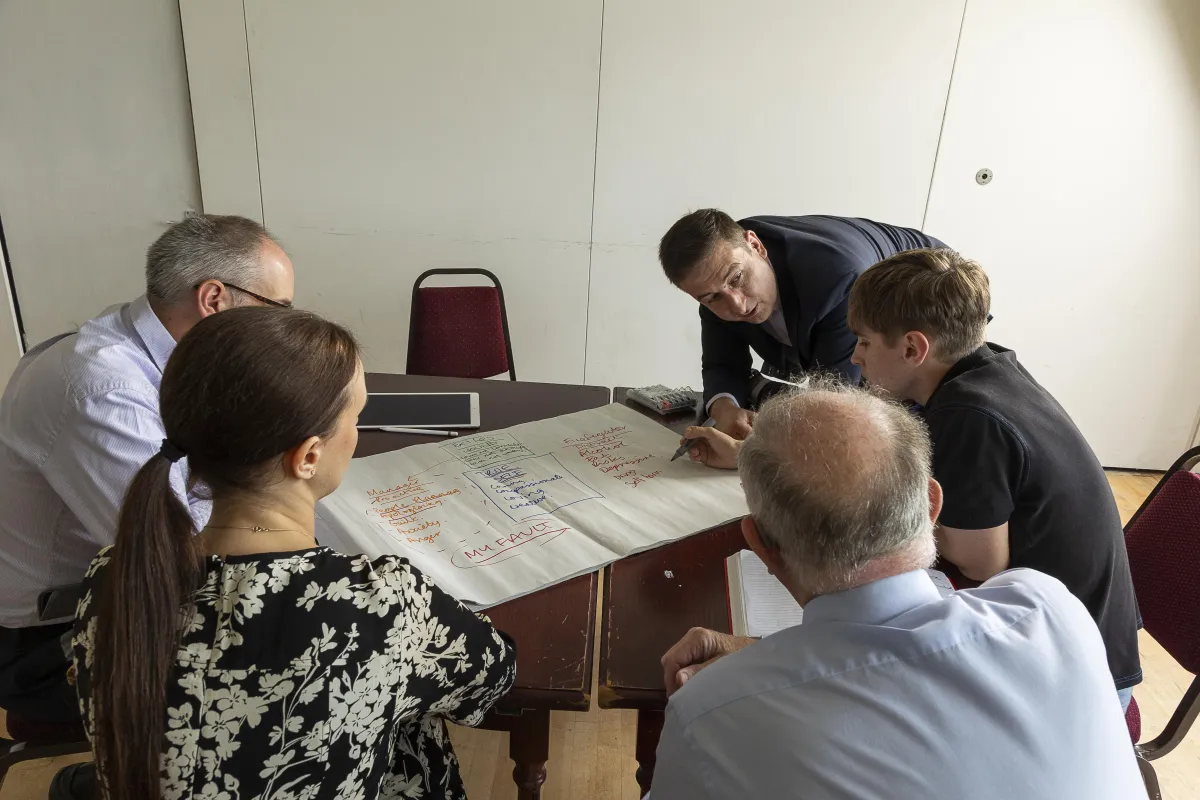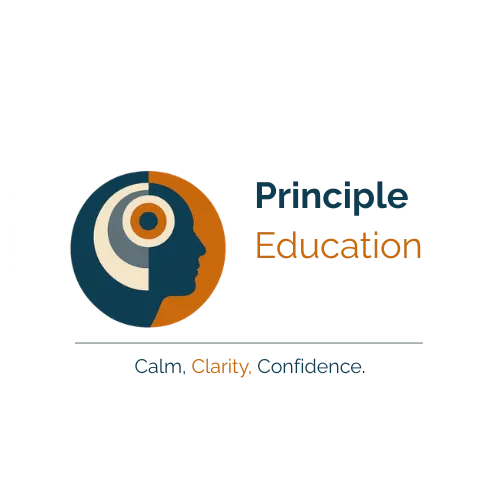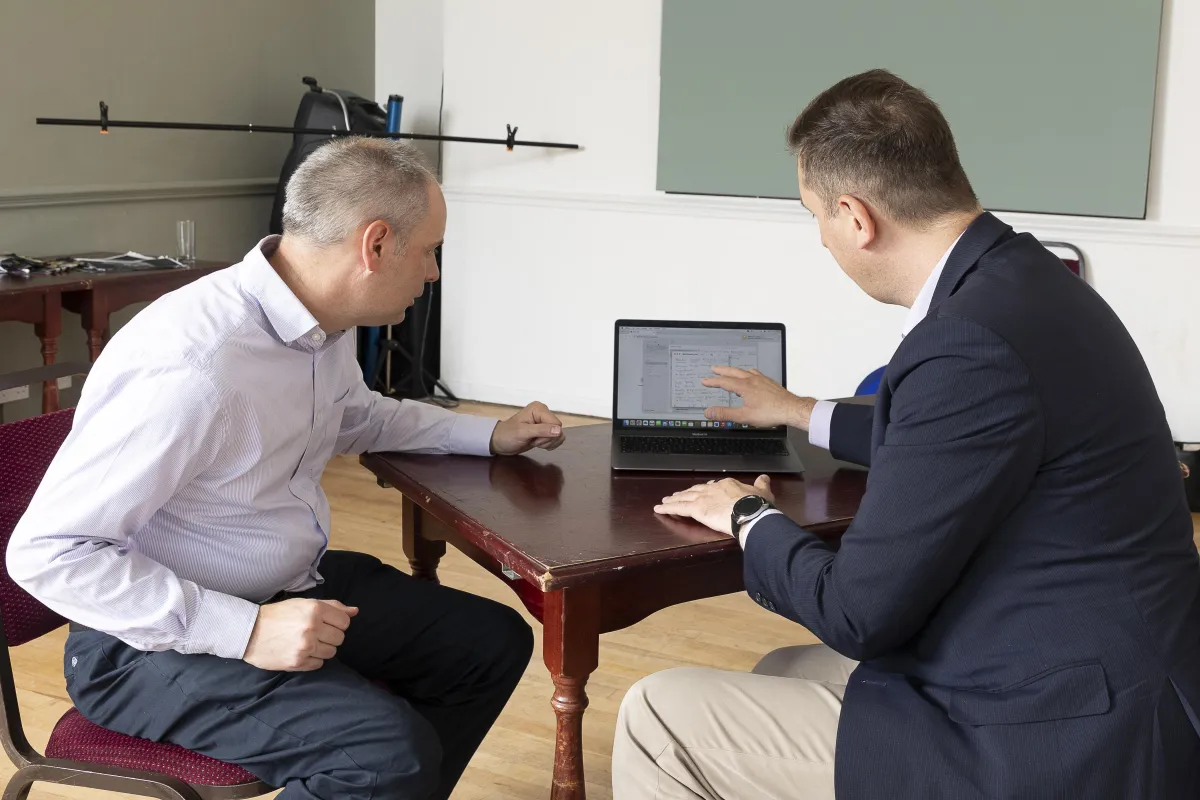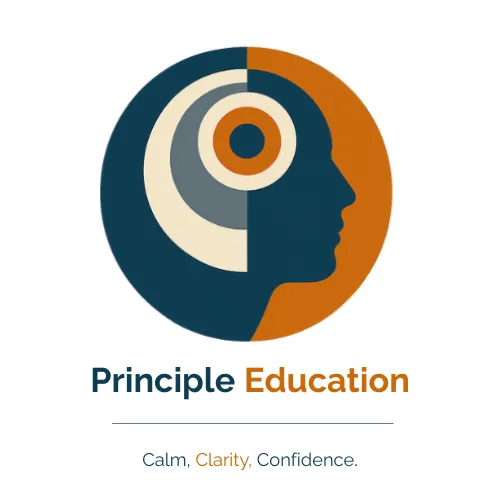
Find Calm, Clarity and Confidence for your Designated Safeguarding Leads and Early Years Staff with
Trauma-Informed Supervision for DSLs & EYFS Practitioners
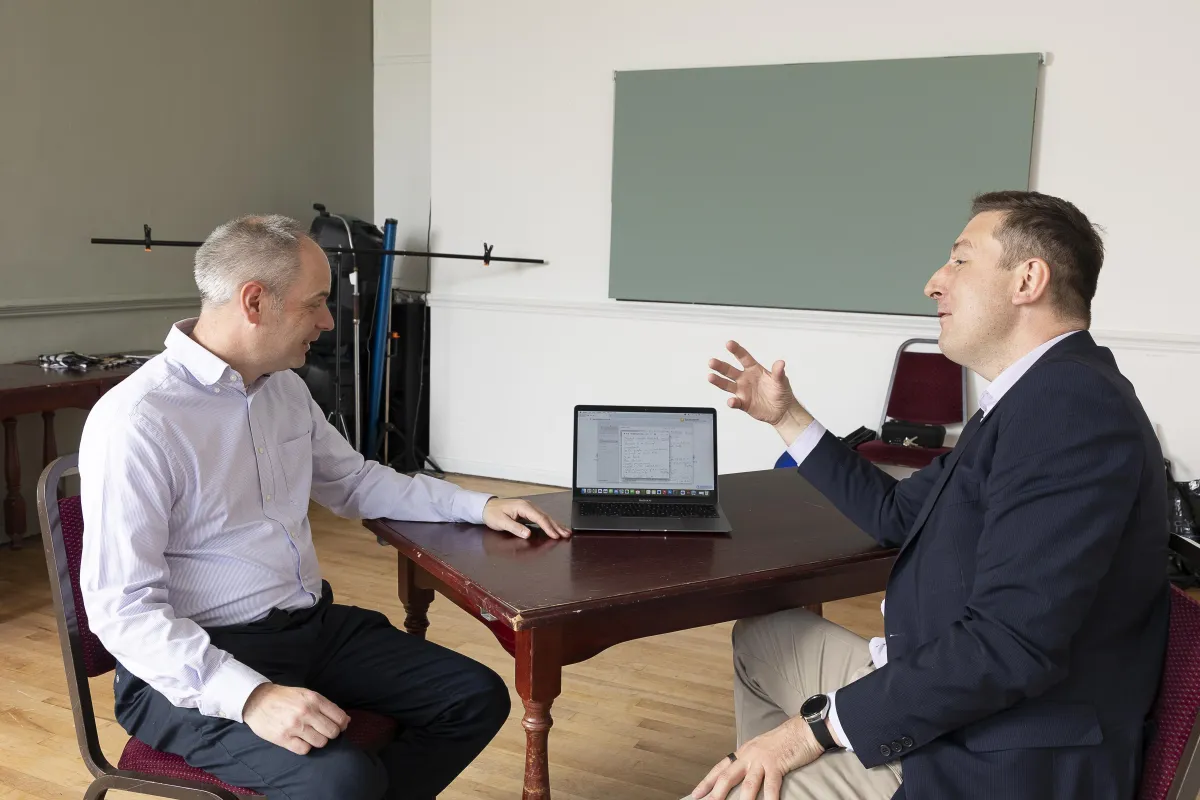
About Nick
I'm Nick Whitehouse, founder of Principle Education and The Whitehouse Principle. I’m a passionate advocate for trauma-informed leadership, mental health, and inclusive practice in schools.
I’ve spent over 20 years living and breathing education from the inside out. As a former headteacher and senior leader, I understand the weight school leaders carry: the safeguarding responsibilities, the staff pressures, the accountability, and the quiet moments when it all feels like too much. I have completed the NSPCC’s Supervision Skills in Child Protection Training. I have also been a Designated Safeguarding Lead since 2012, so I know just how important it is to feel supported — not just professionally, but personally too.
I’ve brought together my experience in education with therapeutic and coaching approaches to offer something holistic and impactful. I’m a Mental Wellbeing Practitioner, Somatic Trauma-Informed Coach, Clinical Solution Focused Hypnotherapist, Neurodivergence and Inclusion Coach, Positive Psychology Practitioner, and Reiki Master. This blend allows me to work with whole communities — staff, pupils, and families — to create environments where people feel safe, seen, and supported.
Outside of schools, you’ll find me on the airwaves as a radio presenter on Brumside Radio and as a podcast host/guest, where I continue the conversation around mental health and education. My work is about building trust, creating space, and helping others lead with calm, clarity, and confidence.
If that sounds like something your school could use — let’s talk.
In the world of safeguarding and early years education, supervision isn’t just beneficial—it’s essential. For Designated Safeguarding Leads (DSLs) and EYFS professionals, the emotional demands of supporting vulnerable children and families can be intense and complex. High-quality, reflective professional supervision provides a safe, structured space to process difficult cases, explore ethical dilemmas, and prevent burnout—while enhancing decision-making and emotional resilience.
Nick’s trauma-informed, strengths-based approach to supervision is designed specifically for those working in safeguarding and early years settings. With over 20 years’ leadership experience and a deep understanding of the pressures facing DSLs and EYFS practitioners, he offers practical, compassionate support that prioritises your wellbeing and professional growth. Regular supervision is now considered best practice. Let’s work together to protect your emotional health, strengthen your professional confidence, and help you continue making a meaningful impact—safely and sustainably.
Don’t wait until you’re overwhelmed to seek support. Regular supervision is not only recommended in the DfE’s guidance for safeguarding and early years, but also clearly reinforced in Keeping Children Safe in Education, which highlights the need for staff—especially DSLs—to access ongoing support and reflective practice. Investing in supervision protects both your wellbeing and the children you care for.
Book your first supervision session today and experience a safe, confidential space tailored to your unique role and responsibilities. Let’s help you stay emotionally resilient, ethically grounded, and confidently equipped for the demands of safeguarding and early years leadership.
Emotional Resilience & Wellbeing
Supervision provides a safe space to process the emotional impact of safeguarding and early years work, reducing stress and preventing burnout.
Reflective Practice & Better Decision-Making
It encourages deeper reflection on challenging cases, supporting ethical, informed decisions that are in the best interests of children and families.
Professional Accountability & Growth
Supervision promotes ongoing learning, helping you to stay aligned with current guidance, such as Keeping Children Safe in Education, while developing your skills and confidence.
Safe Space for Support & Challenge
A good supervisor offers both empathy and constructive challenge—helping you to unpick complex situations and feel less isolated in your role.
Compliance with DfE Guidance
Regular supervision is increasingly recognised as a key part of best practice, and aligns with Department for Education (DfE) expectations for safeguarding and EYFS staff support.
TESTIMONIALS
What people say about working with Nick.
Nicky from Stafford
Nick has been an amazing support at a significant time in my life, with helping me consider my priorities and next career options. He really gets to know you in a relaxed approach and personalises it to you. He has helped me develop my confidence and made me feel a lot more confident about myself.

Pooja from Solihull
Working with Nick has been a life changing experience. I came to him stuck , anxious and unable to break certain patterns that were holding me back. Through his calm presence and highly skilled hypnotherapy sessions, I was able to access parts of myself I hadn't been able to reach before. nick created a safe judgement free space where I could let go, heal and reprogram old habits and beliefs with surprising ease. Each session left me feeling lighter, clearer and more aligned with who I want to be. I'm deeply grateful for Nick's intuitive guidance and the practical changes that have come from our work together. I can't recommend him enough to anyone looking for real, lasting transformation.

STILL NOT SURE?
Frequently Asked Questions
Have questions about our services? You're in the right place!
Question 1: What is professional supervision?
Supervision is a structured, confidential space where professionals can reflect on their practice, explore challenges, and receive emotional and practical support. It’s designed to promote wellbeing, ethical decision-making, and continuous professional development.
Question 2: Is supervision a legal requirement?
Statutory Guidance:
Several documents, including the Statutory Framework for EYFS, Working Together to Safeguard Children, and Keeping Children Safe in Education, highlight the importance of supervision for DSLs and other staff involved in safeguarding.
Question 3: What happens during a supervision session?
Sessions provide a confidential space to discuss casework, emotional impact, team dynamics, boundaries, and professional dilemmas. You’ll be supported to reflect, problem-solve, and develop strategies that protect both children and your own wellbeing.
Question 4: How often should I have supervision?
Best practice suggests monthly sessions for DSLs and at least termly for EYFS staff. Frequency can be tailored to your role, workload, and level of responsibility.
Question 5: Is supervision confidential?
Yes. All sessions are confidential within safeguarding and legal boundaries. The focus is on creating a safe, non-judgemental space for you to speak openly and feel supported.
Question 6: Can supervision be done online?
Absolutely. Supervision can be offered via secure video call, making it flexible and accessible wherever you are.
© Copyright Nick Whitehouse | The Whitehouse Principle 2025. All rights reserved.
